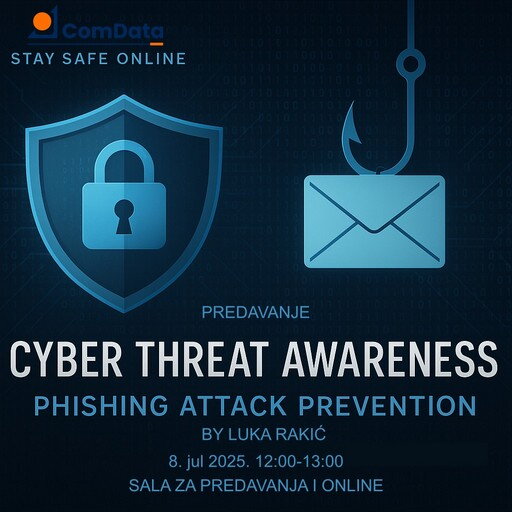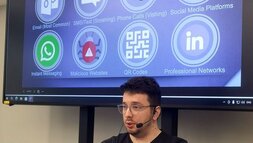
As part of continuous activities to strengthen cyber security, an expert lecture on "Cyber Threat Awareness – Phishing Attack Prevention" was held in our company, led by Luka Rakić, an expert in cloud technologies, artificial intelligence and cyber security.
The lecture included a comprehensive overview of phishing attacks – the most widespread and dangerous form of social engineering in the digital environment. Luka pointed out that as many as 80% of security incidents start with phishing attacks, while 82% of phishing messages use artificial intelligence to generate compelling content. The average damage per successful attack is $4.9 million (IBM CDBR 2024).
Through the analysis of the psychological mechanisms used by attackers – such as false authority, urgency, fear and greed – participants were instructed on how to recognize and respond appropriately to attempts to compromise. Special emphasis is placed on sophisticated forms of attacks such as spear phishing, whaling and BEC (Business Email Compromise), which target high-ranking employees and use multi-channel communication.
The lecture also covered technical methods of deception (spoofing, site cloning, URL manipulation), as well as prevention strategies: multi-factor authentication, employee education, attack simulations, security policies and the implementation of advanced email protection (SPF, DKIM, DMARC).
The conclusion of the lecture is clear: phishing attacks do not target technology, but people. The most effective protection is a combination of technological solutions, continuous education, and an organizational culture that fosters security awareness.
We would like to thank Luka for a very useful lecture and all the participants for their active participation. Such initiatives are key to building resilience to cyber threats and a safer digital future.






